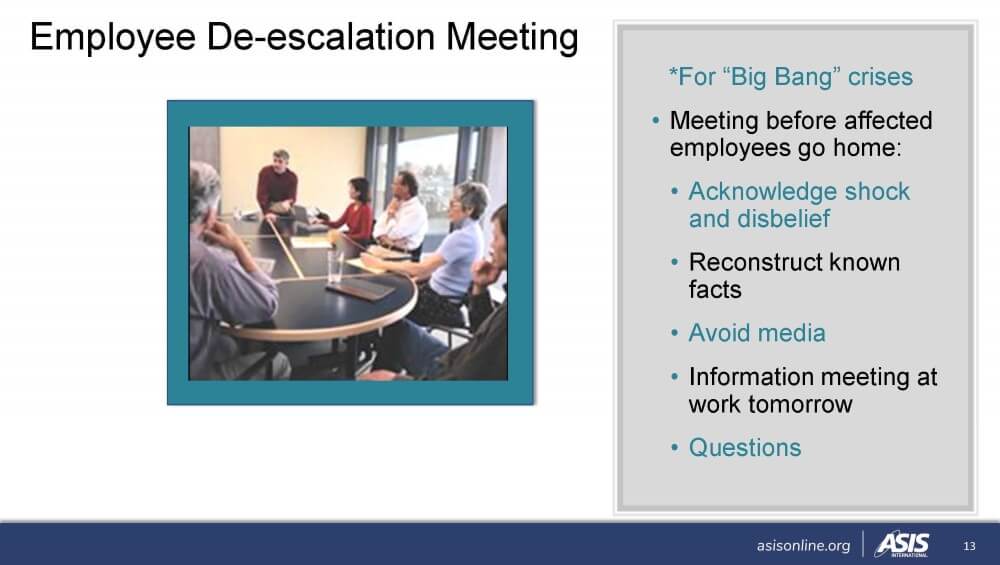During a Crisis, It’s All About the People
As a security leader, you have expertise in security but your job is to be a good and trusted advisor to management on all matters, not just security issues. In a crisis, your security experience is invaluable, but you bring the most benefit to your organization by focusing your attention on all people affected and their physical and emotional well-being.
That was the message last week in the ASIS International webinar “The Human Side of Crisis Management,” led by Bruce Blythe. A crisis management expert, certified clinical psychologist, and Marine Corps Military Police veteran, Blythe wrote the book Blindsided: A Manager’s Guide to Crisis Leadership and is owner of R3 Continuum, Inc.
“Our company deals with 1,500 crises a month, which is more than I ever thought we’d do,” Blythe said. “The most common issue that we get called about—every month when we get called about these 1,500 crises—most often it is about addressing the human impacts.”
While the webinar touched on the current pandemic crisis and many of the guidance applies, the focus of the webinar was mainly on critical events which Blythe describes as “big bang” events, such as active shooter, workplace violence, or a major accident. In such instances, Blythe listed a security director’s immediate crisis priorities as:
- Security
- Protect incident site
- Next-of-kin notification
- Communications
- Rumor control
The scene will be chaotic, and security’s role is to bring order. Getting people out of harm’s way is paramount, and doing so effectively means preplanning, so when a crisis occurs, it’s about reading the situation and adapting and applying the plan. Details are important.
“Family members may be showing up—what are we going to do? Where are we going to put those family members?,” Blythe says. “If it’s a family member of someone who was killed, we have to put them in a place that is not with all the other family members, so there’s just things like that, logistical things that you want to think about ahead of time.”
Blythe also went into detail about the importance of communication in the immediate aftermath of a critical event. It’s important to quickly establish talking points and deliver them to staff. These talking points present the facts as you know them, establish official pathways for two-way communication, and inform staff how they can access additional support if needed. Ideally, these talking points will be given to all staff the same day as the incident—as a group if feasible, distributed to supervisors to give to their teams as necessary. His tips for this de-escalation meeting are below:

The webinar is available for on-demand viewing; free to ASIS webinar subscribers, $49 for ASIS members, or $79 for nonmembers.
